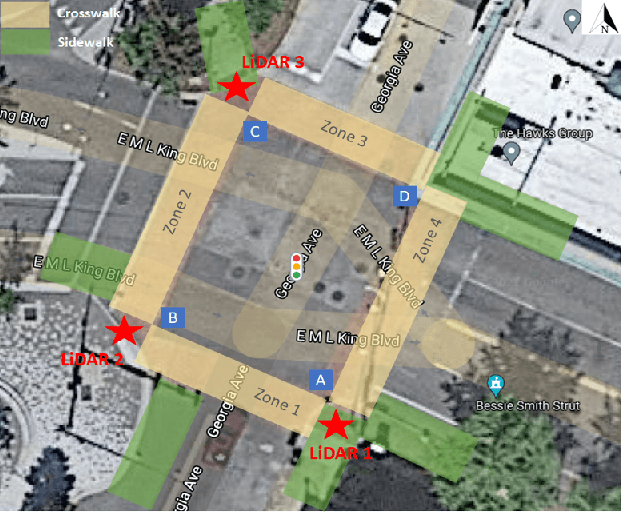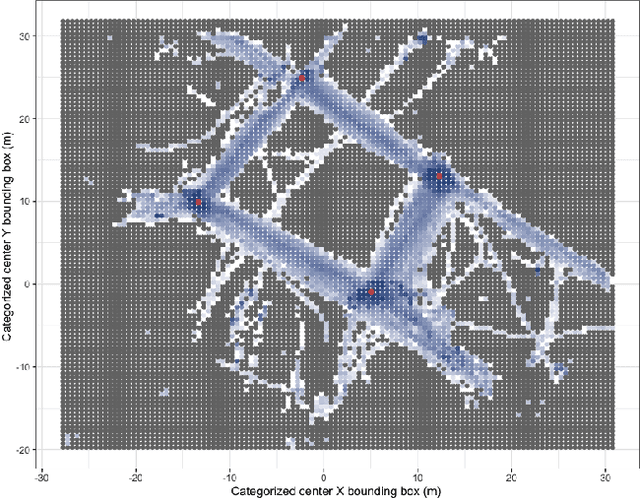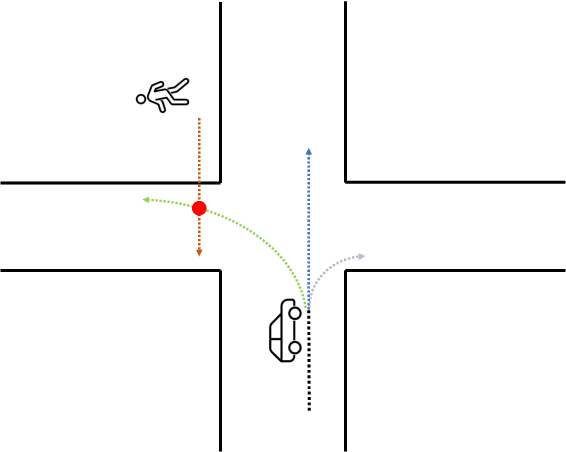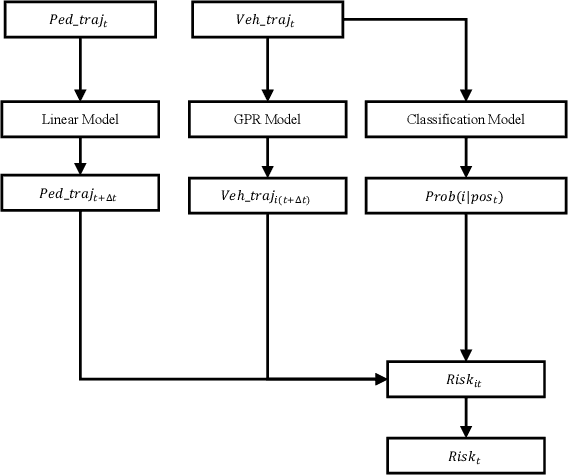A Probabilistic Framework for Estimating the Risk of Pedestrian-Vehicle Conflicts at Intersections
Paper and Code
Jul 28, 2022



Pedestrian safety has become an important research topic among various studies due to the increased number of pedestrian-involved crashes. To evaluate pedestrian safety proactively, surrogate safety measures (SSMs) have been widely used in traffic conflict-based studies as they do not require historical crashes as inputs. However, most existing SSMs were developed based on the assumption that road users would maintain constant velocity and direction. Risk estimations based on this assumption are less unstable, more likely to be exaggerated, and unable to capture the evasive maneuvers of drivers. Considering the limitations among existing SSMs, this study proposes a probabilistic framework for estimating the risk of pedestrian-vehicle conflicts at intersections. The proposed framework loosen restrictions of constant speed by predicting trajectories using a Gaussian Process Regression and accounts for the different possible driver maneuvers with a Random Forest model. Real-world LiDAR data collected at an intersection was used to evaluate the performance of the proposed framework. The newly developed framework is able to identify all pedestrian-vehicle conflicts. Compared to the Time-to-Collision, the proposed framework provides a more stable risk estimation and captures the evasive maneuvers of vehicles. Moreover, the proposed framework does not require expensive computation resources, which makes it an ideal choice for real-time proactive pedestrian safety solutions at intersections.
 Add to Chrome
Add to Chrome Add to Firefox
Add to Firefox Add to Edge
Add to Edge